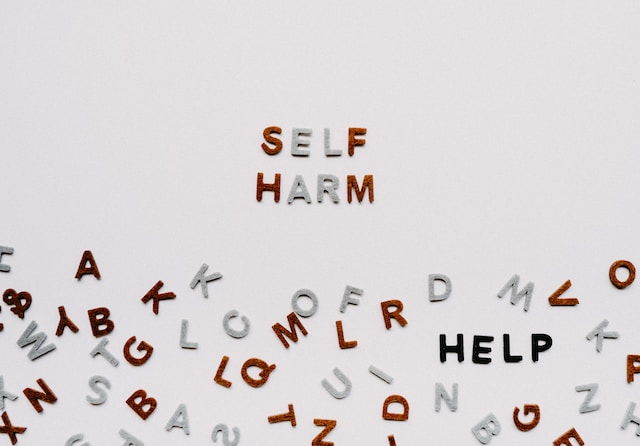Self-harm is a complex and difficult issue that affects many people. It refers to intentional actions that cause injury or damage to one’s own body, often as a way of coping with intense emotional distress or to feel a sense of control over difficult circumstances. While self-harm may provide temporary relief from overwhelming feelings, it can be dangerous and even life-threatening. In this blog, we’ll explore the reasons why people self-harm, the risks involved, and what kind of help is available. Self harm is different to a suicide attempt where the person harms themself. Self harm is often a coping mechanism without a true wish to die.
Why do people self-harm?
There is no single cause for self-harm, and it can affect people of all ages, genders, and backgrounds. However, many people who self-harm report that they do so as a way of coping with emotional pain or stress. Self-harm may provide a temporary sense of relief or distraction from overwhelming feelings such as anxiety, depression, or trauma. Additionally, some people may use self-harm as a way of expressing their emotions or communicating their distress to others.
Is self-harm dangerous?
Self-harm can be extremely dangerous and may result in serious physical harm or even death. Some of the risks associated with self-harm include infection, scarring, permanent physical damage, and accidental overdose. Additionally, self-harm can exacerbate underlying mental health conditions and contribute to a cycle of negative coping mechanisms.
What kind of help is available for self-harm?
There are many effective treatments available for self-harm, including therapy, medication, and support groups. Cognitive-behavioral therapy (CBT) and dialectical behavior therapy (DBT) are two common forms of therapy that can help individuals learn healthy coping mechanisms and develop strategies for managing intense emotions. Medications such as antidepressants may also be prescribed to help manage underlying mental health conditions. Similarly, if an underlying mental health condition, such as PTSD or CPTSD is treated successfully with psychological therapy this may resolve the self harm. Additionally, support groups and online communities can provide a safe and supportive space for individuals to share their experiences and connect with others who understand what they are going through. These support groups need to be considered carefully as sometimes they can also be unsupportive. Un moderated online support groups may not be as safe as a moderated group or in-person groups with a mental health professional involved.
How to support someone who self-harms
If you know someone who is self-harming, it’s important to approach the situation with compassion and empathy. Avoid judgment or shaming, and instead focus on listening and offering support. Encourage the person to seek professional help and offer to assist them in finding resources or making appointments. Additionally, it’s important to prioritize self-care and seek support for yourself as well.
Resources for self-harm:
There are many online resources available for individuals who are struggling with self-harm, as well as for those who want to learn more about how to support someone who is self-harming. Some helpful resources include:
- SANE Australia: https://www.sane.org/
- ReachOut: https://au.reachout.com/
- Lifeline: https://www.lifeline.org.au/
- Beyond Blue: https://www.beyondblue.org.au/
- Headspace: https://headspace.org.au/
If you or someone you know is struggling with self-harm, it’s important to seek professional help. At the Centre for Clinical Psychology in Melbourne, we offer evidence-based treatments and compassionate care for individuals struggling with self-harm and other mental health concerns. To book an appointment, please call us on 03 9077 0122 or book online. We are here to support you on your journey to recovery.



